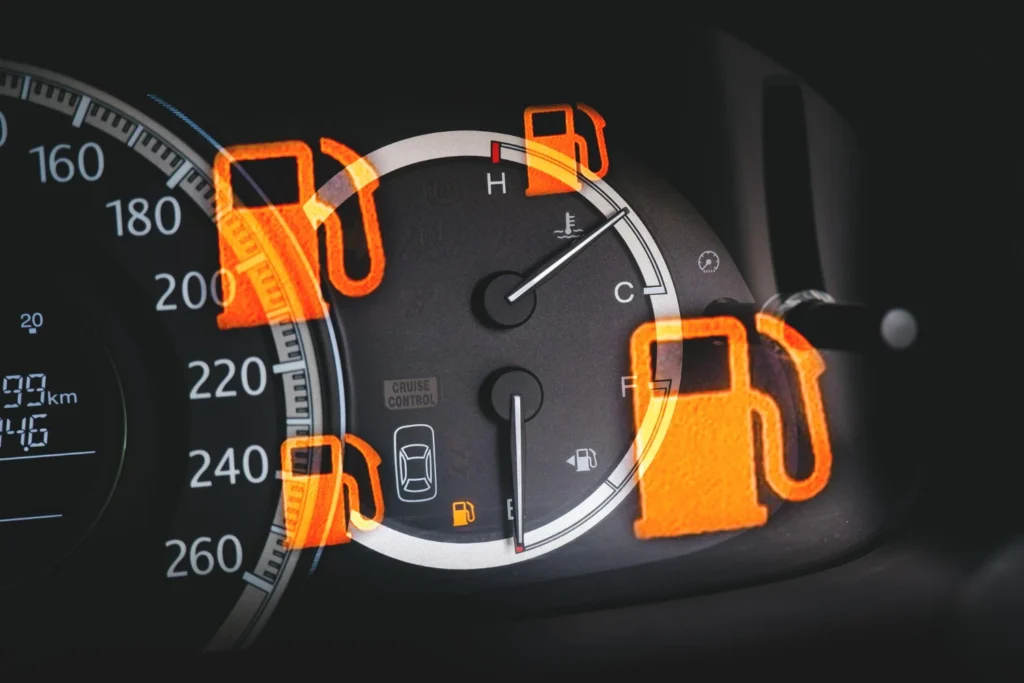Having a car means enjoying its comfort and taking care of it to keep it efficient for as long as possible. Visiting a reliable auto repair Houston can help maintain key systems like the fuel system. The fuel system is one of the most important systems in your car, as it supplies the engine with fuel to operate efficiently. If the fuel system is starting to fail, various symptoms may appear, and they can impact the car’s performance, fuel economy, and even the safety of other road users. In this blog post, we will discuss the symptoms that may suggest your car’s fuel system is in poor condition and when to get fuel system service.
If you’re searching for ‘auto repair near me,’ we’re here to help — book your service today.
What common signs must you look for when your car’s fuel system fails?

Difficulty Starting the Car
The first sign of a failing fuel system is usually when you start experiencing a hard time starting your car.
If, for instance, the fuel pump is non-functional or the fuel filter is blocked, your engine is not getting enough fuel for ignition.
This issue can occur in several ways:
- Prolonged Cranking: It is slower to start compared to the usual times one expects to take when starting a car.
- Engine Not Starting: Even after several tries, there is no success because the engine does not start.
Engine Stalling
Another sign of a bad fuel system is when the vehicle’s engine experiences stalling from time to time.
If your car starts but stops shortly, it might result from an intermittent fuel supply, which may result from a faulty fuel pump or a dirty fuel filter.
This issue can be especially dangerous if the situation arises while driving a car. Look for these signs:
- Stalling at Idle: The engine cuts off when the car is stationary.
- Stalling While Driving: The engine stalls while the car is in motion.
Loss of Power
One of the most obvious signs that you are having a faulty fuel system is when there is a significant decrease in power, especially while accelerating.
It can stall under load if the fuel injectors are clogged or the fuel pump cannot deliver the necessary fuel. Symptoms include:
- Sluggish Acceleration: The car is slower to accelerate than it usually does.
- Reduced Performance: Torque feels down overall, and acceleration seems less than before in all engines.
Unusual Noises
Check for any strange sounds from your car, especially near the fuel tank.
A failing automobile fuel pump will make a whining or humming sound. Pay attention to:
- Whining Noise: A continuous, shrill sound coming from the vicinity of the fuel tank.
- Humming Noise: A persistent low buzzing sound that was not heard earlier.
Check Engine Light
The check engine light is a general indicator that can be triggered by a host of issues, one of which could be related to the fuel system.
New cars have other sensors that keep checking the fuel system’s performance, and the check engine light may flip when it detects a problem.
Error Codes: Take the error codes to a professional person in order to ascertain the specific cause.
Persistent Light: If it stays on or blinks, it then requires attention and should be looked at.
Read more : How long can you drive with check engine light
Strong Fuel Odor
If the smell of fuel near your car is intense when you are driving or when your car is parked, it means that there is a leakage in the fuel lines or the fuel tank.
They are dangerous and should be addressed as soon as possible, especially if they are fuel leaks. Look for:
- Fuel Smell: The smell of gasoline inside or outside of the car.
- Visible Leaks: Water stains or stains on car sponges where the car is parked.
Takeaway
If you pay attention to the symptoms of a failing fuel system and take action before it gets worse, you will be in a better position to avoid more serious complications.
The fuel system of your vehicle should be checked regularly, quality fuel should be used, and professional mechanics should be consulted on the fuel system of the car.
If you ever notice any signs of a faulty fuel system, you should book a consultation with Erics Car Care to ensure that your vehicle remains safe and operational.

